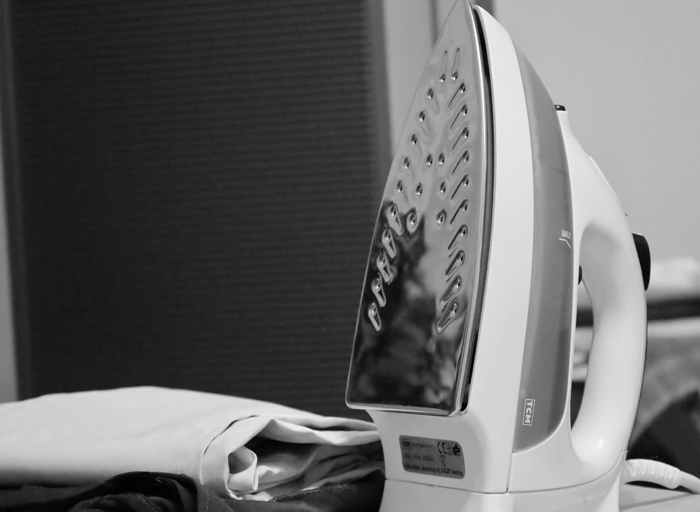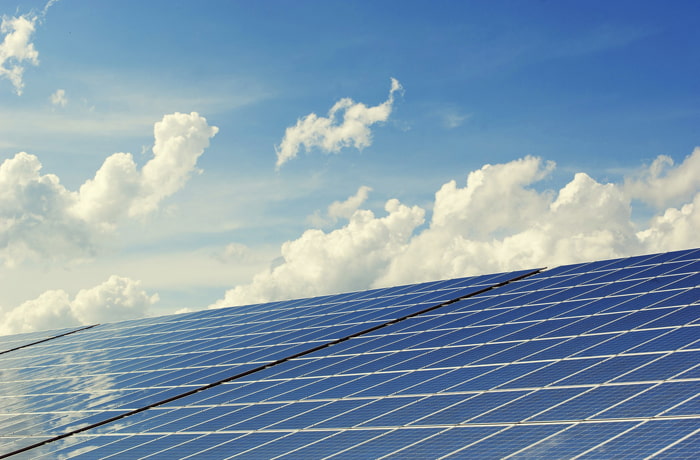If you prefer to always view the website in English, please click here.
Energy can get used up in lots of ways, as we explained in the big data project "Your Energy Counts".
But in addition to this in-depth, detailed information, it is interesting to review the latest Family Budget Survey from the Spanish National Institute of Statistics. The conclusions are clear: 3.5% of our yearly spending goes to energy.
Behind this statistic is the reality of millions of families with very different kinds of spending, based on how big they are, their habits, their needs and even the place where they live. Even so, they all have a shared objective: reducing energy consumption.
We took stock of the country by selecting five very different family units, to see what their habits are and what tricks they use to get those savings.
When you live in a rural home
Jesús Padín and Rosa Domínguez are 56 and 54 years old. They live in Rías Baixas, very close to the Sanxenxo tourist area (Pontevedra). On paper they shouldn't use much electricity, since the last of their two children got married and left home three years ago, but nothing could be further from the truth.
Jesús and Rosa, after nearly 30 years working in Switzerland, decided to invest a good chunk of their savings in converting their family property into rural accommodations. All told, they have three apartments, as well as their own home.
"Our electricity expenses went up a lot", Rosa told us. "There are months, especially in the winter, when we hardly rent any of the apartments, except for maybe a weekend. At that time of year, we consume very little electricity, but in the summer, when we're at full capacity, our consumption sky-rockets".
Jesús and Rosa don't discriminate between hours. "We can't wait to turn on the washers or iron at night; we do it whenever it is convenient during the day", for which reason they prefer a 24-hour fixed-price energy rate.
For them, efficiently using appliances is critical. "The washing machines are always full", Jesús says, "If it makes sense for timing, we don't use the dryer, and instead we hang-dry the towels and sheets so that ironing will be easier". "Ironing is much more work and much more of an expense" Rosa says.
That's why they decided to buy a steam station "ironing that way is much easier and much more economical, with clothes that are completely dry".
If the sun is your strength
Pablo Rodríguez and Clara Pérez don't have any problem with rain and humidity. They live in a small district in Adra (Almería), along with their son Adrián, who is two years old, and three dogs. He is a high-school teacher in Almería and she works at a horticultural co-operative in El Ejido as a sales department manager.
Both are from Madrid, but for the past 16 years, they have made their home on the warm coasts of Almería. Their house is about 600 metres away from their closest neighbours, and they designed it themselves so it's as efficient as possible.
"We don't have heating, so when it gets down to 12-14 degrees here, things get complicated", says Clara. "What we did was insulate as well as we possibly could to keep the temperature suitable in summer, even though we do use the air conditioning quite often, but at a reasonable temperature of 22-24 degrees".
Since they live in the part of Spain with the most hours of sun per year, they decided they might as well install solar panels. "It doesn't provide us with all of our energy, but it does give us major savings". For Clara cooking and eating habits are a major way to save. "We use a lot of fresh veggies and fruits, with recipes that hardly require any preparation and can be eaten cold, like salmorejo and gazpacho", they say. "In the summer, we hardly even turn on the stove".
Saving with a household of six
Carlos De Tomás and Isabel Gamarra live with their four children in Becerril de la Sierra, a town in at the bottom of the Sierra de Madrid, where they have lived for three years in a single-family home. "We decided to find a calmer place to live with our kids, even though we have to go near Madrid almost every day for work" they say.
In such a big home, it's important to save on every item you can, including energy. "We signed up for a night energy rate, with hourly breakdown, for electricity and gas, with all of the maintenance services". "After getting to work, helping with homework, giving bathes, and making dinner... We have a lot left to do at night, so having that kind of hourly breakdown means a lot of savings". "At night and in the mornings on the weekend is when we run the washer and dryer the most, when we iron, and when we meal-prep".
Heating is another major expense in the cold mountain winters. "In the mornings, we all leave every day for work or school, but we all come home from 5:00 p.m., so it's important to start warming up the house an hour in advance". "Another major expense is food storage; we can't go shopping every day, so we make two or three big runs per month", which means that, besides a large refrigerator, they also have two chest freezers. "Since they're running all the time, we bought the ones with the most efficient rating, that consume the least".
The lights are another battlefront. "Our twins in particular, who are five, leave a trail of turned-on lights wherever they go, even if it's the daytime; they never turn them off". Therefore, investing in LED lighting systems to be more efficient was a "great idea" for them. With their two daughters, who are 14 and 11, they face a different struggle. "They always leave everything plugged in, especially mobile phone chargers". In order to avoid phantom consumption they make it a rule that, before leaving for school or other activities, they have to unplug everything.
“An LED light bulb lasts for approximately 50000 hours, as versus 1000 for traditional incandescent bulbs.”
The single economy
Joan Carles's problems are totally different. He lives alone in the city centre of Barcelona, in one of the most fashionable neighbourhoods. Joan Carles works for a multinational iron company and he travels a lot. "There are months when I'm travelling more than I'm home", so he designed his savings in a way that adapts to his flexibility.
"My appliances are very well adapted for the consumption of a person living alone". Despite all of this, he points out how, for example "Even though my dishwasher is very small, sometimes it takes me three or four days to fill it, and I rarely run it half-full".
"The place where I was losing a lot of energy was on heating", he told us. "I would program the heating, which at my home is electric, and if I was going to meet friends to have a drink after work, it meant I was spending all that money on nothing". To solve this problem, "I installed a wireless thermostat, and I can turn it on with my mobile when I'm on my way home". He also chooses to monitor his energy consumption when he's spending long periods of time away from home. "If I'm going to be away for several days, I turn off the hot water heater: I can perfectly well wait a few hours to take a shower when I get home".
“Every household has different savings potential according to its circumstances.”
When your home is your office
Marta and Sandra are the antithesis Joan Carles. They spend lots of time at home because, besides being their home, it's their place of business. Sandra is from Madrid and Marta is from Mérida, and they met when they were both studying architecture in Madrid, but they decided to settle in Extremadura, in an old house that they restored, and in which they designated an area as an architecture studio.
"We didn't just spend many hours there, we also consumed a lot of energy". "Computers, lights, A.C., our workspace…" With such intensive use, they didn't opt for a discriminate rate: "We'd rather have the tranquillity of paying the same price, regardless of the time".
In their workspace, to save on consumption, besides having LED lighting they make a point of always leaving everything turned off. "We have power strips that disconnect all of the computers, monitors, tablets and lamps when we're done working". As for air conditioning, "our main expense is in the winter, so we chose a gas rate that wouldn't give us any surprises. In the summer, since it's an old house with very thick walls, it keeps the cold in very well". "As for food, we have very healthy habits: we buy a lot of fresh foods, so we scarcely use the freezer, or even the stove, for that matter".
These instances of energy-efficiency projects for all kinds of families show us how more and more people are interested in energy savings.
“In Spain, every home spends, on average, €746 on electricity and €266 on natural gas.”
{{content.phone.title}}
{{content.phone.text}}
{{content.phone.phoneText}}
{{content.form.title}}
{{content.form.text}}
{{content.form.success.title}}
Take a minute to find the product that best suits you:
{{firstStep.title}}
Take a minute to find the product that best suits you:
{{title}}
{{content.phone.title}}
{{content.phone.text}}
{{content.phone.phoneText}}
{{content.form.title}}
{{content.form.text}}
{{content.form.success.title}}
You don't need to adapt to Endesa's tariffs because they adapt to you. If you go to our catalogue you can compare the different tariffs for yourself. Or if you prefer, you can answer a few questions and we will take care of comparing all the different electricity and gas tariffs and then make a customised recommendation.
Take a minute to find the product that best suits you:
{{title}}
{{content.phone.title}}
{{content.phone.text}}
{{content.phone.phoneText}}
{{content.form.title}}
{{content.form.text}}
{{content.form.success.title}}
You don't need to adapt to Endesa's tariffs because they adapt to you. If you go to our catalogue you can compare the different tariffs for yourself. Or if you prefer, you can answer a few questions and we will take care of comparing all the different electricity and gas tariffs and then make a customised recommendation.
Comparison of Electricity and Gas Tariffs
You don't need to adapt to Endesa's tariffs because they adapt to you. If you go to our catalogue you can compare the different tariffs for yourself. Or if you prefer, you can answer a few questions and we will take care of comparing all the different electricity and gas tariffs and then make a customised recommendation.
Spend a minute to find the product which best adapts to you:
{{firstStep.title}}
Spend a minute to find the product which best adapts to you:
{{title}}
Spend a minute to find the product which best adapts to you:







